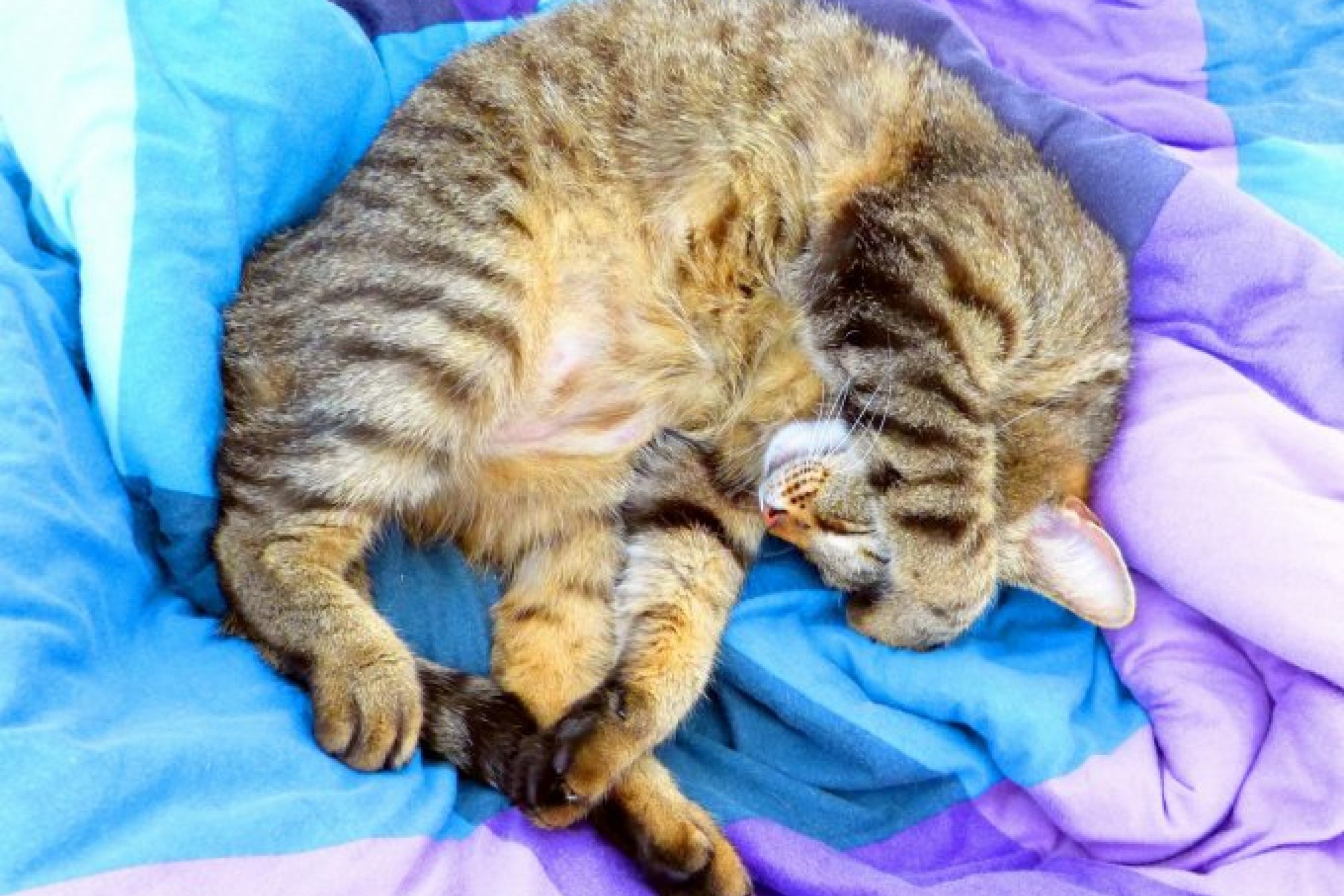Why does your cat vomit? Learn the most common causes and treatment methods

Friday, 26 April 2024

Every cat owner sooner or later encounters the problem of cat vomit. This is obviously not a pleasant situation. What should be kept in mind then?
First of all, you should know that vomiting is not a sign of the pet's maliciousness. Why do cats vomit? There are many reasons but first of all it is worth asking yourself some basic questions:
With the answers to these questions you can more easily find out the cause of such phenomenon. Sometimes it can herald the beginning of a serious disease.
There can be many reasons for cat vomit:
Littering - this is a 100% natural symptom, vomiting is intended to remove hairballs from the cat's digestive tract; the vomit may contain grass and hair swallowed during licking; the cat eating the grass irritates its digestive system thus triggering the vomiting reflex. Part of the grass like a brush cleans the digestive tract pushing the fangs into the intestines and anus; when vomiting of this kind bothers the owner of the pet, it is possible to buy food with a larger amount of detergent, which are designed for cats with long hair. Other than that, a decolliner paste works well.
Food intolerance - your cat doesn't like the food and you need to replace it with another. Even a high-quality food may not be suitable for a particular cat and has to be replaced with a completely different one. Vomiting usually occurs after eating and contains digested food often with blood added.
Eating too fast - vomiting usually appears right after meal, because cat eats a lot and fast. It happens especially to cats which starved themselves in their youth and to those which love to eat. Then it's worth to change the food for one with bigger size of crisps. Then the cat is forced to chew them and cannot swallow them whole. Apart from that, you can buy special bowls for cat eaters. With them the pet has to work a bit harder to get to the food. Apart from that, feeding in smaller but more frequent portions works well. Do not leave food in the cat's reach.
Worm infestation - vomit sometimes shows worms such as roundworms. Worms in the cat's intestines poison the cat with their metabolic products and irritate the intestinal walls as they travel towards the lungs. They cause a choking sensation and a vomiting reflex. Outdoor cats should be wormed every three months and indoor cats every six months.
Food poisoning - the cat has eaten something harmful that has harmed it. It can be cleaning agents, plants which are harmful for the cat, pesticides, chosen medicines, feeling on neomecin, too big dose of dewormer. It is worth remembering that cats, on the other hand, are resistant to botulism. Most often vomiting in this situation is accompanied by lack of appetite, lethargy, frequent lying down, irritability, motor incoordination, hiding from the owner, not drinking water, etc. Whenever there is a suspicion of food poisoning, you should immediately go to the vet, because the help must be fast and professional. Lack of detoxification can destroy the pet's liver, kidneys and other organs. The sooner help arrives, the greater the chance that the pet can be saved.
Swallowed string or a piece of foil - only a veterinarian can give the cat medications under his control to induce vomiting and diarrhea. Sometimes an x-ray or ultrasound of the abdomen is also performed. When cat sees a piece of string or foil sticking out of its bottom you can't pull it, because it can even lead to intestine rupture. Veterinary help is necessary.
Panleukopenia - strong vomiting is accompanied by diarrhoea. When the cat wasn't vaccinated against panleukopenia and it is quite young (up to 6 years old) it can get this dangerous disease. In this case the time is crucial. The sooner the cat is taken to the vet and treated (drip, neupogen, blood transfusion), the bigger is the chance that it will survive.
Vomiting can also be a sign of acute or chronic kidney failure. The culprit is generally an elevated blood urea level. It is what poisons the cat and causes vomiting, just like other poisons.
Vomiting is the body's defensive reflex to remove whatever is harmful. Interestingly, not all animals can vomit. In the case of horses the ingestion of something harmful with the feed basically means immediate and painful death.